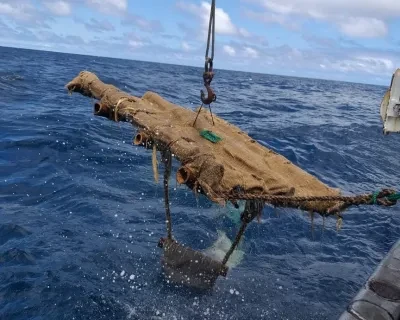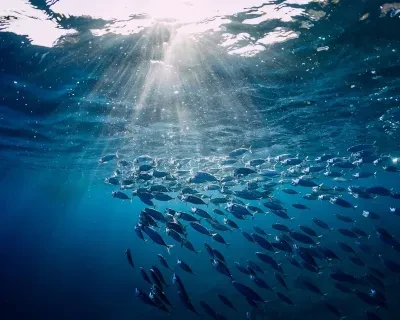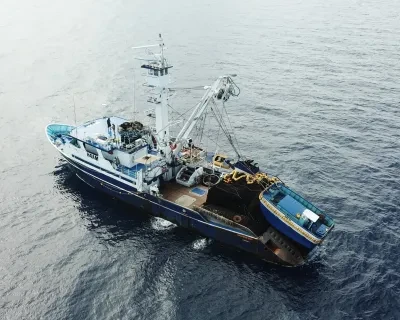
Striving for Responsible Fishing
Our business relies on healthy, fertile, and plentiful oceans. That’s why our fleet's fishing operations follow the highest practice standards, whether we’re fishing in the oceans.
We are dedicated to sourcing seafood responsibly, adhering to international standards like those set by the ISSF, RFMOs, and MSC certification.
.7%
of the tuna we use for our branded products is caught following responsible fishing practices
%
of tuna in compliance with ISSF and RFMO regulations.
%
of our vessels are equipped with electronic monitoring

FAD Management
FADs (Fish Aggregating Devices) are floating objects used to attract tuna, improving fishing effectiveness. They can also lead to bycatch and marine pollution. We are committed to use FAD responsibly and reach 100% biodegradable FADs for all our vessel by 2025.
Transparency: Key to Sustainability
We were one of the first companies in the world to develop an advanced traceability system for canned tuna products, certified ISO 22005. This allows us to trace every can of tuna we produce from the moment the tuna is caught until it reaches the customer plate.
100% of our tuna is fished in compliance with ISSF and RFMO regulations every year.


Responsible Fish Sourcing Makes the Difference
Ocean protection and marine ecosystem restoration are global challenges that can be tackled only working together with industry, NGOs and scientists, especially those with the greatest potential to reduce the pressing threats to the ocean’s biodiversity and find solutions.
At Bolton, we believe that our role is to encourage transformative partnerships that promote ocean stewardship to improve our industry.
Reducing Bycatch
The bycatch of non target species is an unintended consequence of tuna fishing. We always strive for excellence in the operation of our fleets. That’s why we’ve taken various measures to limit bycatch and to release any bycatch back into the sea immediately.

Read about Bolton and sustainability
Our Stories

Bolton Unveils New Sustainability Report: A Commitment to a Greener Future
At Bolton, sustainability is at the heart of everything we do.

The New Simmenthal Playground in Milan is Open
We have worked on a community engagement project focused on the enhancement of a basketball playground in Milan.

Our Toledo Plant Achieves AENOR Zero Waste Certification
Our Toledo plant has proudly achieved the AENOR Zero Waste certification, a significant milestone in our ongoing commitment to s...

